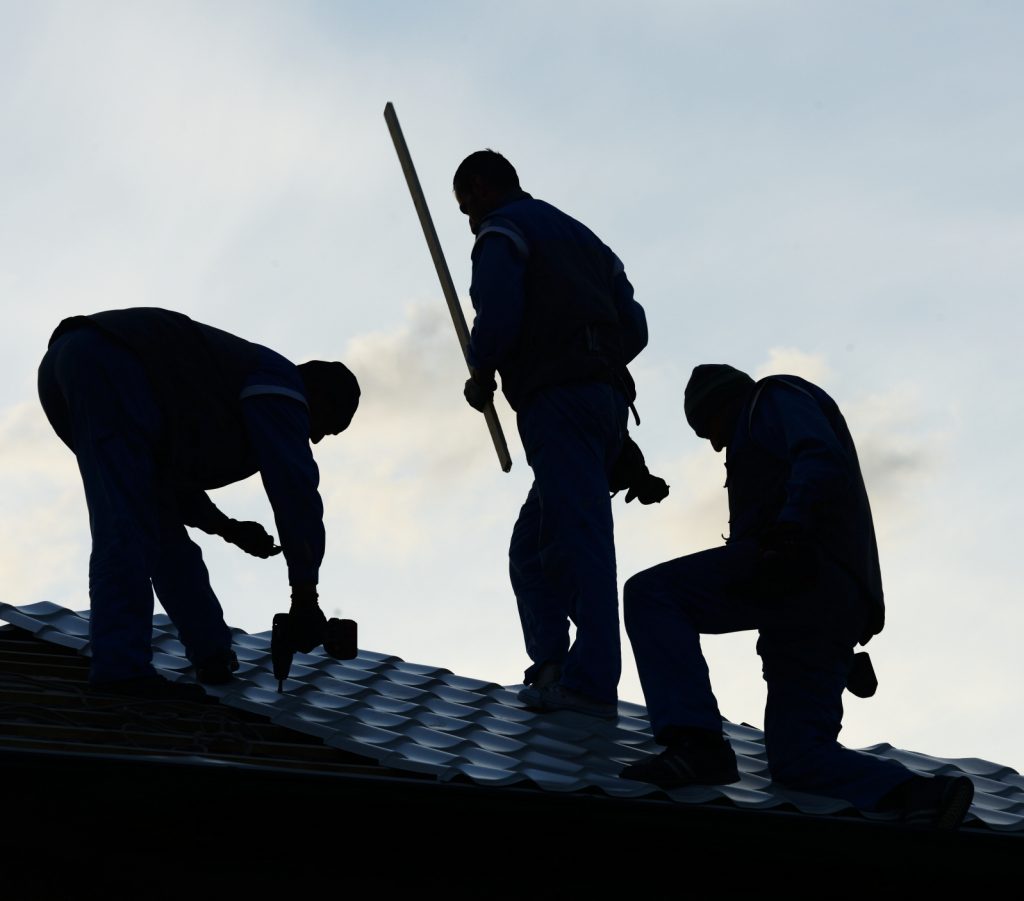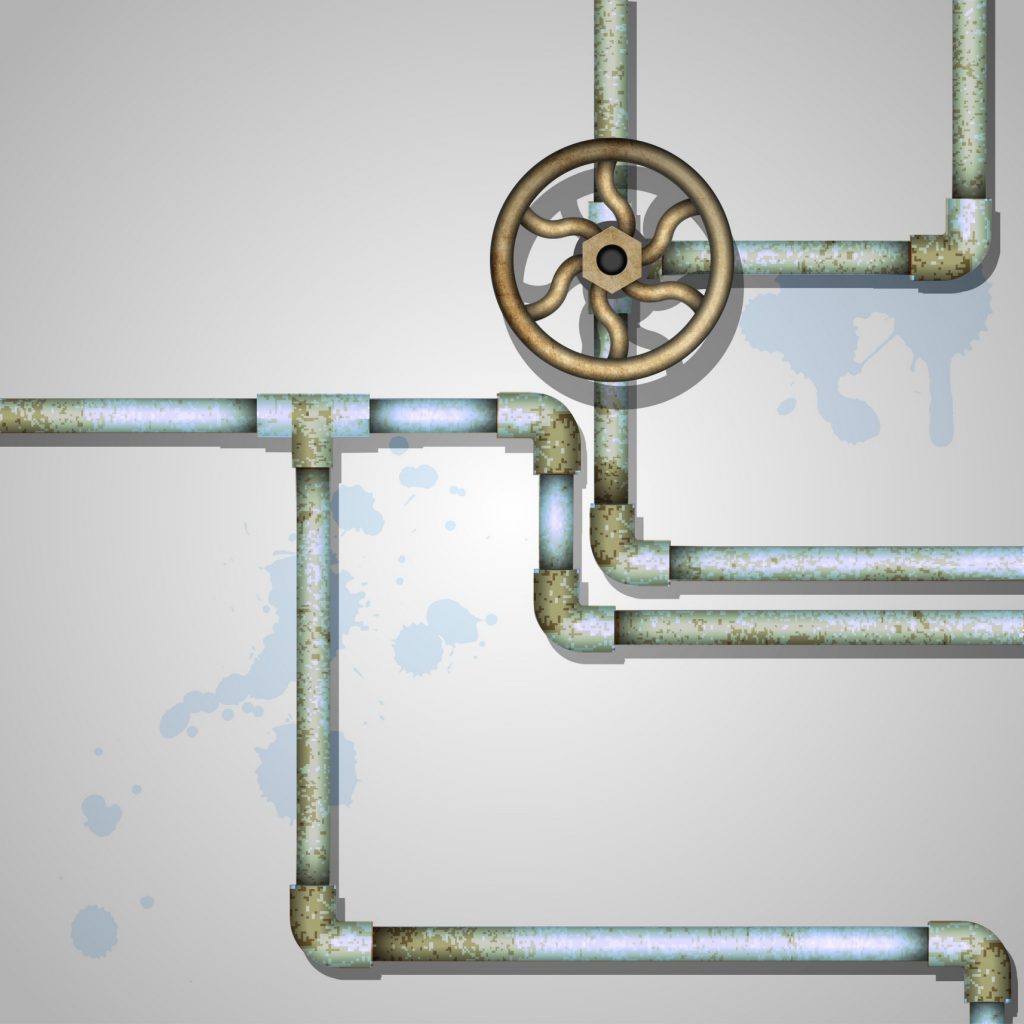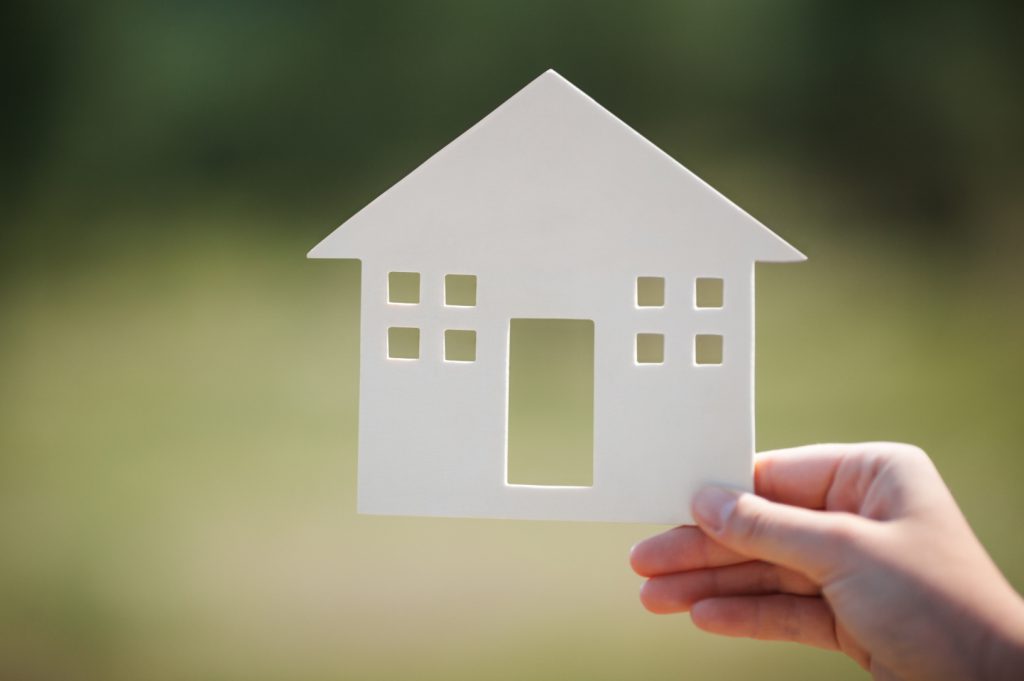Tag Archives: homes for rent
14 Common Home Problems Buyers Should Look For

When looking for a home to buy, it pays to be aware of common problems found in many homes. Once you make the purchase, you take over responsibility for all of the existing issues in the home. Keep an eye out for these issues so you can adjust your offer accordingly, or move on to another property that is relatively problem-free.
If you are a perspective home seller reading this please make mental note of these common home sale issues so you can be well prepared to identify and address them before you put your home up for sale. You will be glad you did!

1. Roof Problems
The roof is one of the most important components of the home. A damaged or poorly maintained roof can lead to serious problems, including water damage. Major roof repairs can be expensive, and should definitely be factored into the price of the home if they exist. The roof is an area that most buyers will not compromise on. Keep in mind however that when you have a home inspection and your inspector tells you that there are only a few years of expected life in the roof, you shouldn’t expect the seller to replace it. Most sellers are not going to replace a roof when there are years of life left before issues arise.
2. Old Appliances
Appliances are built to last only so long, especially if they are not regularly maintained. The cost of replacing appliances can be substantial and should be considered. Granted, higher quality appliances last longer. It is worthwhile to do some research on the year, brand and model of the major appliances in a property to get a clear picture of what you are purchasing.
3. Handrails
This may seem minor, but functional handrails are necessary on staircases and along balconies for safety. Test all of the handrails in a home, and ensure that all appropriate areas have handrails before buying. One of the common trouble spots is on decks. This becomes especially important when the deck is elevated off of the ground where someone could get seriously hurt if falling from a greater height.
4. Storm Damage
Each area of the country experiences extreme weather – weather that can do serious damage to a home. From hurricanes to hail storms, these weather events can damage roofs, siding and even foundations in the event of flooding. Hail storms can be very destructive without a home owner even realizing it. A few years ago in Hopkinton Massachusetts, over a third of the homes in town received new roofs because of a vicious hail storm.
This is something that most good homeowners insurance policies will cover. Unfortunately there were also a number of people in Hopkinton who did not even think to check that they had hail damage. Upon selling their home, the buyer would get a home inspection and that’s when they found out they had damage. For many of these home sellers it was too late to file a claim. The tough part of hail damage is that it is not often visible to the naked eye. A good home inspector will be able to spot hail damage by getting up on the roof or possibly by using high-powered binoculars.

5. Rotten Wood
Even modern, pressure-treated wood will break down under the elements eventually. Look for rotten wood around the base of the home, along the roof and anywhere else where moisture may have been an issue. Some of the most common areas you will find wood rot on a home are on the window sills.
While rotted window sills can be found on any age home, there has been a prevalence of it in homes that were built in the 80’s and 90’s due to lesser-quality, finger-jointed woodwork. Finger-jointed materials, if not constantly painted, will rot a lot more quickly due to water penetration and just an overall lack of quality.
6. Cooling or Heating Systems
Temperature control systems wear out over time, and they can be expensive to replace. Check on the age, integrity and maintenance schedule of any heating or cooling system present in the home. Newer models are notably more efficient, making them a much better deal in the long run.
One of the most important things you can do as a home buyer is to check the current owners’ upkeep of these items. It is certainly possible a well-maintained boiler can last thirty years or more. It is just as easy for that same boiler to last half as long if not maintained yearly with regular servicing.
7. Environmental Issues
Environmental regulations become increasingly strict as time goes on. This is good for buyers of new homes, but it does not necessarily protect you if you are purchasing an older home. Radon, lead-based paint, mold and asbestos are all health concerns.
Be aware of the dangers of these materials and verify whether they are present in each property. If the home is serviced by a well (as opposed to public water), it is also a good idea to get that tested too. Often times standard well tests will only do a limited screening for such things as iron, copper, manganese, etc. You will want to make sure you also test for more dangerous compounds such as arsenic, mercury and lead.
8. Poor Drainage
Water damage is a risk in areas with poor drainage. Verify that each home you consider has adequate drainage to deal with area rainfall. Because water damage can lead to expensive repair work and mold infestation, you need to ensure that drainage is sufficient on any property you purchase. This is one issue as a home seller not to mess with. There is nothing that will kill a real estate sale quicker than a water issue. Buyers do not want to even think about having a water problem with their home.
9. Electrical Safety Concerns
Older homes may not have electrical systems up to current codes. Things like ground fault breaker outlets in bathrooms and kitchens, as well as grounded outlets throughout the house are necessary for a safe living environment, especially when you consider the current electrical load people put on their homes with new appliances and electronics. In older homes look out for knob and tube wiring.
Most lenders will not provide a loan and most insurance companies will not ensure a home with knob and tube wiring. Eliminating a huge chunk of the buyer pool is not going to help you get top dollar for your home. This is an issue you would want to address before listing your home for sale.
10. Roof Water Control
Gutters may seem like a minor part of a home, but they do a very important job in keeping your house free from water intrusion. Clogged or poorly maintained gutters can leave your home exposed to water and the mold that comes along with it. Sellers that have plants growing in their gutters bring negative attention to their homes. It looks like you could care less about the upkeep of your property and makes buyers look more closely at other potential problems.

11. Plumbing Problems
Plumbing may be hidden from site in homes, but it is a large part of what makes the modern home livable and comfortable. Older homes with older pipes can present problems, though. Make sure your potential home has plumbing that works, and no serious plumbing issues right around the corner. Things like tree root growth can quickly stop up your plumbing and may be a problem with older pipes.
12. Bad Insulation
Modern insulation is excellent at keeping the temperature in your home comfortable. However, some home builders, especially in older homes, did not always insulate adequately. If you view a home in summer, you may be surprised come winter when the house will just not hold heat. Have someone who knows verify that the home has good insulation before you buy. It is common for older homes to not have nearly the same energy efficiency due to lack of insulation in walls and sometimes in the attic as well.
13. Poor Ventilation
A home that does not allow airflow is at risk of developing mold problems, a nightmare for any homeowner. Verify that the home you are looking at allows airflow throughout the house, including the attic. It may be impossible to achieve perfect airflow in every room, especially basements, but the home should allow airflow through most rooms of the house.
One of the most notable home imperfections is a bathroom vent dumping into the attic and not out through the roof. While a bathroom being vented through the roof is now code in most states, this was not the case until recently. It is very common to see homes that have venting leading into the attic, creating the perfect environment for moisture and mold growth.
14. Foreclosed Homes
Foreclosures may initially present an excellent deal, but they also present certain risks. Sometimes earlier owners will do serious damage to such homes before exiting the property. This can include anything from stripping copper piping to tearing out cabinets or other valuable fixtures.
Always look over the property before getting your hopes up, because sometimes you do get what you pay for. When real estate deals seem to good to be true they usually are! Keep in mind when you purchase a foreclosed home the lender who now owns the home generally will know very little about the previous owners’ upkeep and maintenance.
The Help of Someone Who Knows
If these 14 things seem like a lot to keep track of, it is because they are. This is why the help of an experienced professional real estate agent can prove so valuable. They look for such things as a matter of course. However, if you choose to go it alone, make sure to download a home viewing checklist to make sure you cover all of your bases before making an offer.
These are all common items that can certainly be discovered at a home inspection by a qualified home inspector. As a buyer, you should be making mental notes of these items before hand so you can make an offer and budget accordingly. When you are mentally prepared for these types of issues when purchasing real estate, there will be a lot less stress involved with your transaction should one or more of these problems crop up. Don’t lose your cool when you find a problem. Take it slow and do the necessary research to resolve the problem by speaking with a few reputable contractors and getting necessary estimates for repair.
Credit to Bill Gassett
Bill Gassett is a nationally recognized real estate leader who has been helping people move in and out of the Metrowest Massachusetts area for the past twenty six plus years. He has been one of the top RE/MAX REALTORS® in New England for the past decade. In 2012 he was the #1 RE/MAX agent in all of New England.
6 things every new real estate agent should do
It’s exciting to get your real estate license! The information presented in the prelicensing class can be a bit overwhelming (and utterly useless in your marketplace), but it’s all part of the coursework. You study and stress, stress and study, then pass your state licensing exam. When you learn that you’ve passed the test, you are elated and can’t wait to get started … but you learn fairly quickly that you don’t know where to start.
So here are the six things you should do:

1. Select a broker.
Broker selection is critical. Your broker is the one who will help you map out your path to success.
You’ll want to interview a few brokers to compare what each of them has to offer in terms of compensation, knowledge, leadership and training. It may be tempting to sign with the broker offering the highest compensation package, but the other three traits are much more important to consider. If you don’t work with a knowledgeable broker who has strong leadership skills and who offers training, then you are less likely to reach your goals because you won’t learn the skills it takes to be a successful real estate agent.
2. Do more listening.
As a new agent, you have a lot of questions about what to do and how things are done. You have thought about how you want to work and where your business will come from, and all you want to do is get started. Because you don’t know what you don’t know, talk to your broker to see whether they have a 30-day program you can follow to get your business up and running. Although you may be anxious to share your ideas, try to listen more than you talk. Your ideas could be interesting but ultimately unrealistic. Listening to advice from your broker and other successful agents in your office about how to start your business is invaluable.
3. Get the word out.
Now that you’ve become an agent, you’ll want to get the word out. One of the best ways to start is by sending those on your list a handwritten message. It can be a simple three-sentence note simply letting your friends know that you have become a real estate agent and would appreciate it if they would keep you in mind for future business. Before you say that a handwritten note wouldn’t work for your people, give it a try. Because handwritten notes are so rare, recipients absolutely love them. It’s a welcome change from the usual bills they receive in the mail!
4. Learn the neighborhoods.
Many experienced agents have a niche or are known as experts in a certain neighborhood. As a new agent, you don’t have the luxury of having a niche; you just need some business. To better serve your clients, you will need to know the majority of the neighborhoods in your market. What are the house styles, price points and amenities? Since you don’t have many (or in some cases any) clients, use this time to learn the ins and outs of as many neighborhoods and possible. This information will serve you well as you assist visitors at an open house or when answering calls when sitting on floor or desk duty.
5. Be patient.
The average real estate agent sells one or two properties their first year in the business. About 75 percent of new agents fail in that first year. It is important to understand that you are building a business, and it takes time. Every successful agent you see had to start in the same place you are starting.
Continue to work on your business every day. Be patient. As you increase your knowledge, your confidence will increase. And as you grow more confident you will want to talk to more people. That is how your business will grow.
6. Find opportunities to learn.
Understand that not everything will go your way. Your friends and family will not always work with you. You will not get a great lead every time you sit on floor or desk duty. You may have zero visitors at the open house you are working. But all of these issues that appear to be setbacks enable you to improve how you run your business. Just because you don’t get a hot lead doesn’t mean that you can’t hone your telephone skills with those who do call in. When working an open house, you had to research the neighborhood and the other listings in that neighborhood, so you learned something new. Everything you do is an opportunity to learn.
Credit to Candy Miles-Crocker
Candy Miles-Crocker, “The Real-Life Realtor”, mentors and coaches new and experienced real estate agents to transform their business by mastering her proven systems for success. She is a firm believer in managing expectations and her goal is to elevate the perception of real estate agents among the general public through education. Candy’s unique training methods have shown agents what it takes to be successful!
Your REALTOR For LIFE!
9 Tax Deductions Every Real Estate Agent Should Know

Closing a real estate sale requires a big investment of your time and money. Whether expenses are business, personal, or something in between can be unclear — leading to missed deductions and overpayment of taxes.
This is key knowledge regardless of who’s doing your taxes. Understanding which expenses are allowed will help you deduct with confidence and avoid overpaying on your quarterly and year-end taxes, no matter where you are in your career.
1. Vehicle Mileage or Expense
You spend your days driving between properties and appointments. How do you determine whether to go with the standard mileage deduction or track all your auto-related expenses? If you drive 10,000 miles or more per year for your real estate business, you will most likely get the greatest tax benefit by taking the standard mileage deduction.
The IRS requires you to keep a detailed log in order to claim this deduction, which includes date, time, mileage and purpose of the trip. Mileage tracking apps can streamline this process, automatically capturing trip date, length, and time of day for easy categorization.
If you are a lower mileage driver, or have especially high car payments, the actual cost method may yield a higher deduction. The two methods can be compared in more detail in this article.
2. Marketing and Advertising
To be a success and scale their business in a predictable way, most real estate professionals invest heavily in marketing and advertising. Remember that you can deduct not only the direct cost of promotions such as business cards, flyers, signs, ads, and promos but also the production costs, such as writing and design fees, whether the materials are produced by an agency or part-time hire.
Digital and online advertising costs are quickly becoming the greatest area of spending. This includes website design and hosting fees, search engine marketing, pay per click advertising, video production, and any other IT-related costs. Be sure to track all these business expenses.
3. Home Office Deduction
Do you have a dedicated area of your home for work? If so, you’re eligible for a home office deduction even if you also have office space at your broker’s office — unless you’re deducting desk fees already (see more below). Like the vehicle deduction, the home office deduction offers an option: the regular method or a simplified method. Most self-employed people find that the simplified method maximizes their deduction. However, if you have a particularly large home office, or live in a very high-cost area, the regular method — in which you track actual expenses — may yield the highest deduction.
4. Desk Fees
Whether you are hanging your license under a national franchise or with an independent broker, your desk fees are deductible. Note, however, that if you are taking a deduction for brokerage desk fees, you will not be able to claim the home office deduction.
5. Office Supplies and Equipment
Regardless of which office deduction you take, you can claim other office-related expenses, such as stationery, photocopies, and any other consumables needed to run your business. Other large purchases that can be expensed in full – or depreciated over a number of years –include furniture, fax machines, copiers, computers, or you telephone and associated bill.
If you have a dedicated landline telephone for business, you can fully deduct this expense. Increasingly, agents are using a cell phone for both business and personal use. If you do, you are eligible to deduct only the business percentage of that expense.
6. Meals and Entertainment
There are two situations in which you can deduct meals as a business expense: when you are travelling on business and when you are dining with clients or with other professionals for the purpose of conducting business or generating referral business. In either case, you can deduct 50 percent of your total expense, which includes tax and tip for the meal. In the case of business entertainment, you are allowed to take the meal deduction only if business was discussed during the meal, or immediately before or after.
In the case of events that are provided to the general public, such as a well-advertised open house, you are able to deduct 100 percent of the cost of refreshments and food.

7. Fees, Licenses, Memberships and Insurance
Annual fees are a common costs of doing business and are deductible. In real estate, that means your state license renewal, professional memberships, and MLS dues. An important caveat with regard to professional memberships: The portion of your membership dues attributable to lobbying and political advocacy is not deductible. General business insurance and Errors and Omissions (E&O) insurance are both fully deductible business expenses. Additionally, you can deduct real estate taxes necessary for your business, but not self-employment taxes.
8. Professional Development and Travel
Given rapid industry change, continuing education is a great way to stay competitive. It’s also a requirement in most states. Many real estate professionals pursue professional development through classes, trade shows, conferences, or coaching. If you need to travel to attend an event or meet with a coach you may be able to deduct those transportation and/or accommodation costs.
9. Software and Business Tools
Any software needed to run your business is fully deductible – including lead generation subscription services such as customer-relationship management (CRM) software. Products such as QuickBooks Self-Employed not only help you automatically track your expenses and mileage, but may be fully deducted as well.
QuickBooks Self-Employed helps real estate professionals like you keep more of what you earn. Categorize business expenses with a single swipe and let our mobile app track your mileage while you drive. When it’s time to file your taxes, QuickBooks Self-Employed integrates seamlessly with TurboTax and your accountant. With your business income and expenses in one place, you’ll always know where your business stands.
Why the Word ‘Green’ Doesn’t Really Matter
Just as real estate professionals are struggling to understand what defines advances in efficiency and smart-home technology, appraisers are also working to help define and quantify what this trend means for home sales now and in the near future.

Today, more and more homes are being built or retrofitted as “green” or “high-performance” properties. But what exactly qualifies a home as truly green, and how are these new features recognized in the marketplace? Real estate professionals, appraisers, and even some home owners are asking these questions, and The Appraisal Foundation is attempting to answer them as part of a five-year partnership with the U.S. Department of Energy.
What Exactly Is a Green Home?
Simply put, a green or high-performance home is one designed to use less energy or water or improve indoor air quality. However, just because a home has new windows or low-flow water features doesn’t make it automatically “green” or “high-performance.” Such descriptors are usually reserved for properties that have a combination of a wide variety of features.
The spectrum of energy-efficient characteristics a home may possess can make the appraisal process complicated. A number of rating and certification systems have emerged in recent years that can help identify these types of properties. However, ratings can’t catch everything; most residential properties currently have green or high-performance elements that haven’t been documented by such programs and therefore may be difficult to identify. This makes a real estate professional’s communication with an appraiser even more vital in such transactions.
For homes with green or high-performance features, appraisers need to answer more than just the simplistic question of whether they are green or high-performance homes. They want to understand the features that make it green or efficient. They also need to know how green the property is relative to what buyers in this particular marketplace are expecting.
This is why the actual terms “green” and “high performance” are not the most important concern. Instead, the appraiser’s job is to note the features a property has, understand how the market values those features, and determine whether those features have any particular relevance to their appraisal assignment.

How Do Appraisers Recognize These Features?
Appraisers might identify the high-performance features of a property through a wide variety of sources: the review of building plans and specifications, permits, MLS information, and interviews with property owners and occupants, among others. Appraisers may also observe green features first-hand when inspecting a property. They might also look at third-party sources, including ratings and certifications from Energy Star (administered by EPA), LEED (from the U.S. Green Building Council), and HERS (conveyed by Residential Energy Services Network professionals).
One major challenge for appraisers in this situation is the lack of verifiable data about energy efficiency. Although the fundamental appraisal process is no different for a green home, many MLSs and other data sources were designed a long time ago, before there was a way to convey accurate or complete information regarding a home’s energy-efficient features. However, because green homes have become more prominent in recent years, many MLSs are updating their systems to ensure this type of information is being captured and accurately reported. Appraisers all around the country are working with agents and brokers in an attempt to identify the type and extent of data that will help facilitate smooth transactions.
In the interim, this challenge for the appraiser may offer an excellent opportunity for the real estate professional. Providing crucial information about a property that might otherwise be unavailable to the appraiser may not only assist in facilitating the immediate transaction, but could also pay future dividends by helping to create more informed and knowledgeable appraisers and a more complete MLS database.
Does Green Mean Dollars?
While a home with photovoltaic solar electricity might be at the top of some buyers’ wish lists, others may not be quite as enamored. In some markets green homes are all the rage, while others may be quite tepid about such upgrades.
But that’s the way it is with many other home features, and it’s important that appraisers can recognize and account for them properly in order to develop credible opinions about value. At the end of the day, it’s the buyers and sellers who determine how much any particular feature contributes to a home’s value. For a successful transaction, it’s important that the appraiser and real estate professional are on the same page with consumers.
Mr. Bunton has served as the senior staff member of The Appraisal Foundation since May of 1990. As President, he is the chief executive officer of the Foundation. Prior to joining The Appraisal Foundation, he served as the Vice President of Government Affairs and Communications for the Federal Asset Disposition Association. He also previously served as a legislative assistant in the U.S. Senate for eight years and was a Congressional Chief of Staff in the House of Representatives for four years. Mr. Bunton holds a BA degree in Government and Politics from the University of Maryland.
Buy or Sell Your Home Today!
10 Tips To Get Your Property Ready For Summer
It’s time to get your apartment complexes and rental properties ready for summer.

The warm weather means your residents want to get outside and enjoy the community features you offer. Any pool areas, bbq pits, and picnic areas should be ready and inviting for summertime use and the social atmosphere that makes your property stand out.
Make sure you and rentals are ready for summer with these tips:

- Pool Safety – Get the pool cleaned and in prime condition for summertime splashes. If you do not have a lifeguard on duty, check to make sure your posted safety signs are visible and aren’t faded by winter weather or the sun. Check that locks and gates are in good condition to further protect young residents in your community.
- Fill the Propane – Nothing can kill a summer BBQ faster than a grill that runs out of fuel in-between burger flips. If you want your residents to use the community space you provide, make sure the propane tank is full and keep an extra on hand, in case your residents need to make a quick switch.
- Pull out the summer maintenance checklist– Each season calls for different routine maintenance. Your team should be prepared to add summer chores to their to do list like: servicing the pool, cleaning grills, organizing outdoor community areas, adjusting the irrigation system, and getting ready for A/C maintenance calls.
- Set Your Water – When the temperatures start to rise, servicing the irrigation system can result in big savings on water usage, prevent landscape damage, and reduce standing water. You should also program your sprinkles to optimal summer use settings, to keep your landscape looking fresh and reduce over watering.
- Fire Wise – Make sure your property is prepped for high heat and that fire dangers are removed. Outside bushes and trees should be trimmed backed and dead plants removed. Additionally, make sure any grills owned by the property or your tenants are properly ventilated and positioned away from buildings. Make sure to double check your local laws about fire extinguisher requirements for landlords.
- Service the Air Conditioners – Enlist the help of a professional to service the A/C unit at least once a year. They will be able to check the unit, clean coils, adjust dampers, and look for any other potential problems. It is also important to remove trees, debris, or trash that can obstruct proper operation. These measures can prolong the life of a heating and air system.
- Check chairs, umbrellas and tables – Multifamily renters are about to spend more time outdoors, that means any chairs, tables and umbrellas are going to get a lot of use. Your property will be more inviting and safer if those community fixtures work properly.
- Send a Friendly Rule Reminder to Residents – The warm weather and late sunset times brings people outside late into the night. Remind your residents of the complex’s quiet hours and any rules about using the pool, grills, and community amenities. Make sure to include information about your guest policies and parking.
- Check Your State and Local Requirements – Did you know that in Washington, D.C. the housing code requires landlords to put screens on windows and doors from March 15 through November 15 to protect tenants from insects and pests? Make sure you are following state and local laws for seasonal requirements like this for landlord compliance.
- Don’t Forget About Renewals – With all the fun your residents are having this summer, take advantage of asking for renewals while spirits are high. Try hosting a community event, like a BBQ or pool party, and offer renewal incentives. The more your remind your tenants about how much fun it is to live in your property, the more likely they will stay.
When it comes to summer at your rental properties, remember to prioritize safety by encouraging your tenants to socialize and enjoy themselves responsibly this season.
Credit to Kaycee
Kaycee manages marketing and media relations for Rentec Direct, bringing a unique perspective to the world of property management and proudly shares industry news, products, and trends within the community
Make Your Dream Come True!
Spring and Summer Energy-Saving Tips
by energy.gov

Here you’ll find strategies to help you save energy during the spring and summer when the weather is warm and you are trying to keep your home cool. Some of the tips below are free and can be used on a daily basis to increase your savings; others are simple and inexpensive actions you can take to ensure maximum savings through the spring and summer. For more ways to stay cool while saving energy, check out our Energy Saver 101 infographic, covering everything you need to know about home cooling.
If you haven’t already, conduct an energy audit to find out where you can save the most.
Also check out tips to save energy during the fall and winter.
Use Your Windows to Gain Cool Air and Keep Out Heat
- If you live in a climate where it cools off at night, turn off your cooling system and open your windows while sleeping. When you wake in the morning, shut the windows and blinds to capture the cool air.
- Learn more about natural ventilation.
- Install window coverings to prevent heat gain through your windows.
- Find out about window treatments and coverings that can improve energy efficiency.
Operate Your Thermostat Efficiently
- Set your thermostat as high as comfortably possible in the summer. The smaller the difference between the indoor and outdoor temperatures, the lower your overall cooling bill will be.
- Keep your house warmer than normal when you are away, and lower the thermostat setting to 78°F (26°C) only when you are at home and need cooling. A programmable thermostat can make it easy to set back your temperature.
- Find out how to operate your thermostat for maximum energy savings.
- Also see the ENERGY STAR® June 5, 2008, podcast for video instructions on operating your programmable thermostat
- Or see ENERGY STAR’s guidelines for programmable thermostats.
- Avoid setting your thermostat at a colder setting than normal when you turn on your air conditioner. It will not cool your home any faster and could result in excessive cooling and unnecessary expense.
Use Fans and Ventilation Strategies to Cool Your Home
- If you use air conditioning, a ceiling fan will allow you to raise the thermostat setting about 4°F with no reduction in comfort.
- Learn more about using a ceiling fan to increase cooling efficiency.
- Find ENERGY STAR ceiling fans.
- Turn off ceiling fans when you leave the room. Remember that fans cool people, not rooms, by creating a wind chill effect.
- When you shower or take a bath, use the bathroom fan to remove the heat and humidity from your home. Your laundry room might also benefit from spot ventilation. Make sure bathroom and kitchen fans are vented to the outside (not just to the attic).
- Find ENERGY STAR ventilating fans.
Keep Your Cooling System Running Efficiently
- Schedule regular maintenance for your cooling equipment.
- Learn about operating and maintaining your air conditioner, evaporative cooler, or heat pump.
- Avoid placing lamps or TV sets near your room air-conditioning thermostat. The thermostat senses heat from these appliances, which can cause the air conditioner to run longer than necessary.
- Learn additional tips for operating a room air conditioner efficiently.
- Vacuum registers regularly to remove any dust buildup. Ensure that furniture and other objects are not blocking the airflow through your registers.
Don’t Heat Your Home with Appliances and Lighting
- On hot days, avoid using the oven; cook on the stove, use a microwave oven, or grill outside.
- Install efficient lighting that runs cooler. Only about 10% to 15% of the electricity that incandescent lights consume results in light—the rest is turned into heat.
- Learn more about your options for efficient lighting.
- Find out when to turn off your lights.
- Purchase ENERGY STAR lighting products.
- Take advantage of daylight instead of artificial lighting, but avoid direct sunlight.
- Learn more about strategies for efficient daylighting.
- Wash only full loads of dishes and clothes. Consider air drying both dishes and clothing.
- Learn more about efficient dishwashing and laundry.
- Take short showers instead of baths.
- Learn more ways to reduce your hot water use.
- Minimize activities that generate a lot of heat, such as running a computer, burning open flames, running a dishwasher, and using hot devices such as curling irons or hair dryers. Even stereos and televisions will add some heat to your home.
- Learn more about avoiding heat buildup in your home.
Keep Hot Air from Leaking Into Your Home
- Seal cracks and openings to prevent warm air from leaking into your home.
- Learn more about air sealing new and existing homes.
- Add caulk or weatherstripping to seal air leaks around leaky doors and windows.
- Find how to select and apply the appropriate caulk.
- Learn how to select and apply weatherstripping.
- Find out other ways to improve the energy efficiency of your windows.
Lower Your Water Heating Costs
Water heating accounts for about 18% of the energy consumed in your home.
- Turn down the temperature of your water heater to the warm setting (120°F). You’ll not only save energy, you’ll avoid scalding your hands.






